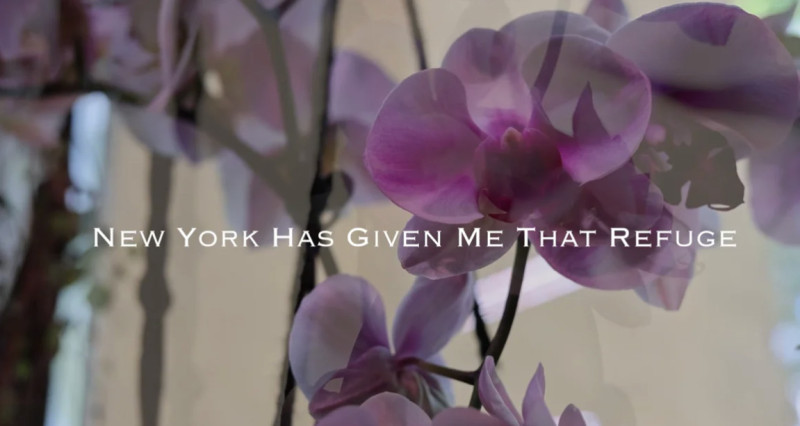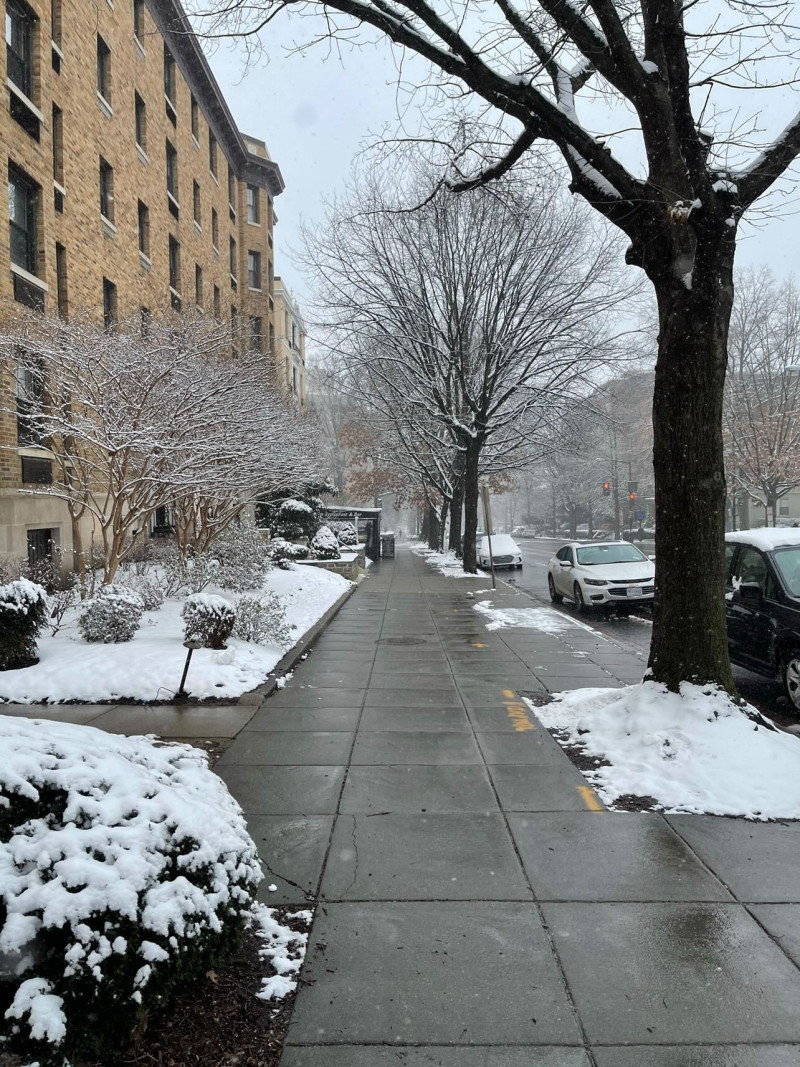
New York has given me that Refuge
In this film, refugee South Asian LGBTQ+ activist Barbara Khan talks about her migration from Pakistan and her life in New York as a trans woman.

Can you describe this first period in Washington, D.C.? What were your feelings and what was going well?
It was so, my experience in D.C. had different layers and different time frames. The first one was when I moved but the second one was when I applied for asylum. I think it was for me, even though I’ve been living here for a while, it was a whole different experience and if it’s like actually new. Like the first period in this he was interesting because I had to multiple things happen. First being physically safe, I thought it’s going to make me more calm, but it actually didn’t. It made me more anxious. But like traumas in general manifested more when you’re in a calmer situation, because your body relaxes adrenaline most less and all of that and this for me was something that is very confusing. I was very confused. I was like: Oh my God! I left. Why am I feeling this way? I’m feeling more horrible like I’m feeling worse. I was fine. I was functioning, which is technically true, I was functioning because I think it was just survival mode. I had to function. And then when I moved here things shifted and it was different, so it was hard…I think I just started to realize a lot of things and all those things started to hit and have their effects on me. And I had to work through not being able to go back… With this feeling of guilt that I left and a lot of my friends were also arrested and their situations were so bad. So I just try my best to navigate all of these things with the the feeling of constant guilt that I had. […]
After the revolution this generation grew up or started to be involved in social life. I feel like our lives were shaped by that. Everything in our existence was shaped by the revolution… If anyone asked me earlier: What are your goals or hopes in the coming five years? I wouldn’t know because five years is a long time… Also, living with constant risk and threats, I wouldn’t even know if I would be safe and alive and free tomorrow. So this is something that it took me multiple years of my stay in the US to adjust to and actually clad think of life. What happened when I moved is that I felt out of place, not culturally not. It’s not a cultural shock, it’s more of I cannot relate to people around me or thinking of building a life I cannot relate to people around me who are planning for a vacation, planning for families. Yeah, didn’t make sense for me. First, because I think I was in survival mode for several years in a row, in that I actually don’t know how to do that. And the other thing is, all of my life is out of control, even though I know I was a student on a student visa, but I knew that eventually, no matter how I delay it or pretend it’s not going to happen. I will be an asylum seeker here in the US, which I really didn’t want to do. I knew that all of my life decisions moving forward are not going to be mine to decide. I will be a number in the system and with that they will decide for me if I deserve protection and staying here or not. So that played that big role for me of being rejection thing of the situation, which is actually a good situation. I’m doing my masters degree, that’s awesome, but just very hard.
Did you take any advantage of services to integrate?
I took advantage of something like housing services…mental health services in the university and activities, lots of activities, like any social activities and events specifically with the word “integration”. Honestly, the system here doesn’t want 10 people. The system is just very very harsh and it keeps reminding you of that till this day in my life…Every step in the system just reminds you that you’re not welcomed. The system is not designed to support… The cultural differences for me were not the problem, but maybe because also I traveled a lot.
Were you living with a friend or roommate?
I lived with roommates for a while. Actually, for the most part I did with roommates, because being a student is not flexible. It doesn’t support you living a decent life. So for example, as a student I had my income which related to being a student. Yeah, and I wanted to work more, but for the most part you’re not allowed to work more because of visa stuff, visa system, so it’s very very hard to live on your own…
You were saying about not feeling welcomed. Did you think you had opportunities to build a new home or future here in the US? Did you feel like you had that opportunity?
I had it socially, I felt I had it socially, but not systematically…I was lucky actually to be in DC, this is very diverse, good for my career, good people here. They are from everywhere, so in a way all of us are actually displayed and don’t have to be sorry.. all of us are migrating out of our home countries…So that was something that made me feel like: Oh, you know what, we can actually build a life here, because you can put people that are not in their home countries and they would have been forced to leave or chose to leave for several reasons, or to seek better opportunities. So that was a lucky thing to have in DC the people that you meet. It’s very diverse. I can’t imagine how my life would have been if I was in a place that is not diverse.
L. (they wish to remain anonymous) is a 30-year-old queer activist, human rights journalist, and refugee from Egypt who has been living in Washington, D.C. since 2017. Because of their participation in the revolution and their work as a human rights journalist covering human rights abuses and social issues in Egypt, they have been targeted by the government for several years in a row, and things kept escalating. L. left Egypt in 2017 to begin their Master´s degree in the United States.
Interview conducted by the We Refugees Archive team with L. in the fall of 2022. The interview has been edited for length and clarity. The interviewee wishes to remain anonymous.